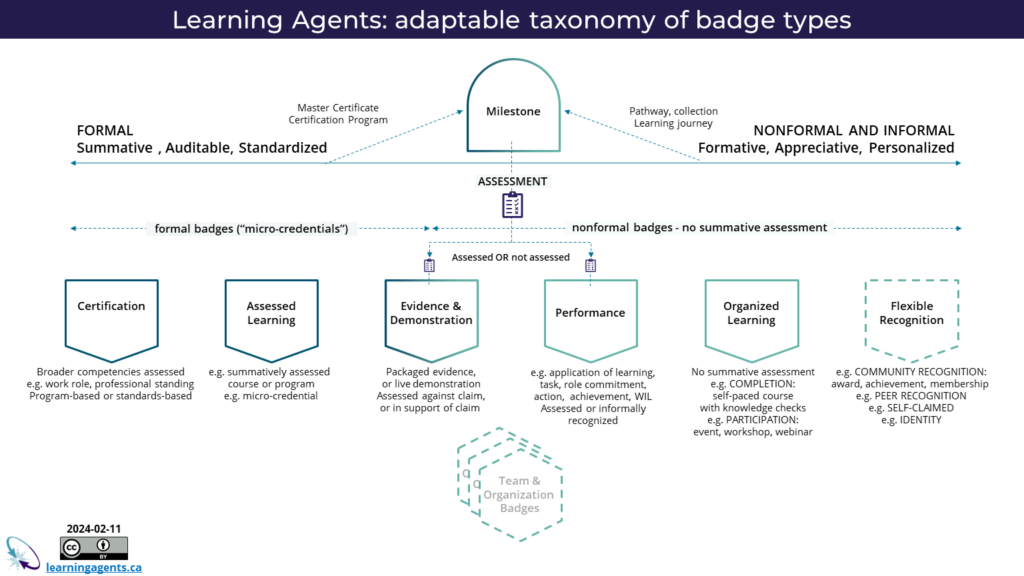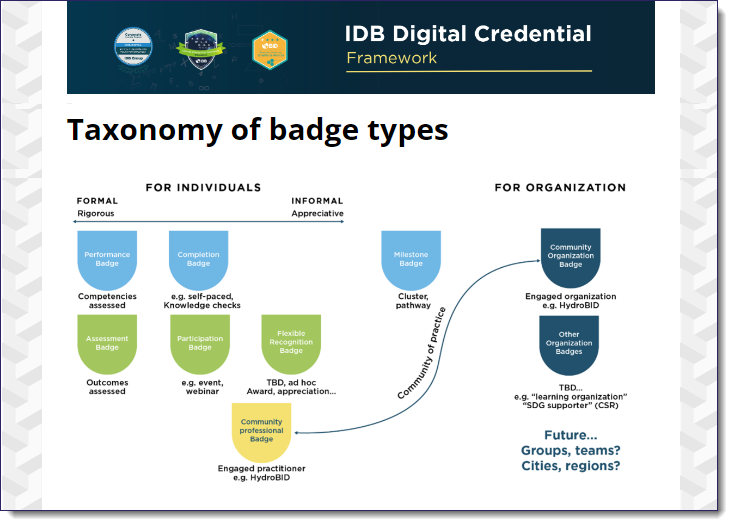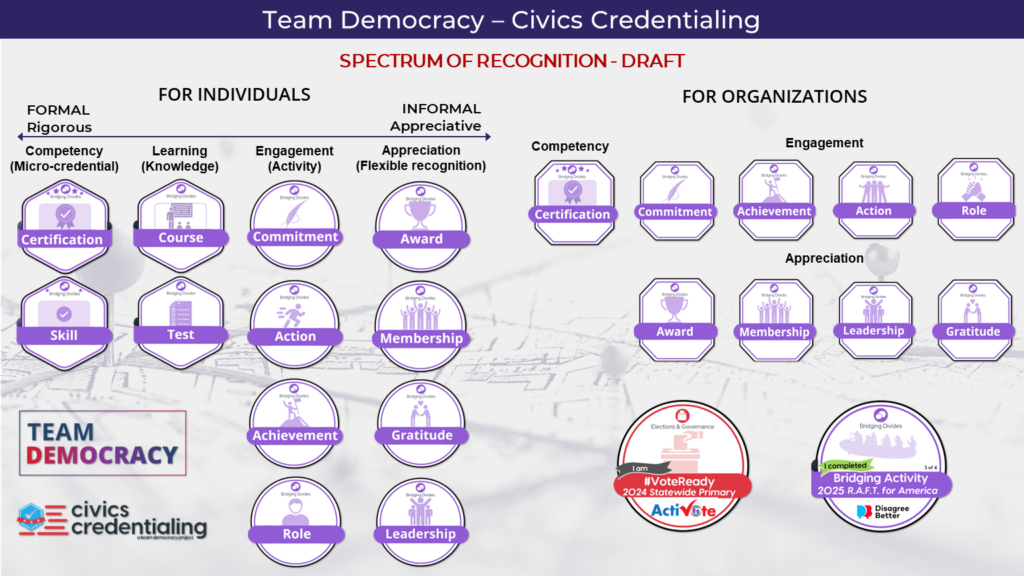I’m seeking feedback from all you awesome people in your various recognition communities as I update the badge taxonomy that Learning Agents uses for its various consulting projects in Canada and internationally, and for support of clients using the CanCred.ca badging platform. Also, wearing my Advocate hat, it has supported my rants about opening up recognition, regardless of platform. So, tactical and strategic utility for me, wearing my various hats, and for others too – at least so they’ve they’ve politely said to me (many are Canadian, after all.)
Thoughts – clarification or complication? Flexible and inclusive, or complex and rickety?Feedback welcome, whether on my blog or on LinkedIn. Help me make this better!

Significant updates to the Learning Agents taxonomy
- Creating a new type, Performance, based on recent work by Chris Newlon of TeamDemocracy.org (see below) and my increasing interest in 70:20:10 model for development that shifts the focus from training to performance
- Merging Completion and Participation into (unassessed) Organized Learning, also inspired by Chris’ work above
- Renaming Demonstration to Evidence and Demonstration
- Forking the Assessment “frontier” to indicate that both Evidence & Demonstration and the new Performance category could be assessed or not assessed, depending on fitness for context
- Hinting at a new category of badge types for Teams and Organizations, thanks to Stella Porto of Inter-American Development Bank from our work together last year
Background
The trigger for this new version is some exciting credentialing work that’s getting underway for adult learning in French Canada, not only in Québec, but supporting lifelong learning and skills development in minority francophone communities across the country.
I’m helping several of these organizations get started with badges for adult learners and for the professional community that serves them. Some early badges I’m designing are for a project for family learning in in Manitoba, and an upcoming National Summit on Learning for Canada’s Francophonie, which is sponsored by the Canadian Commission for UNESCO. One of the stated objectives of the Summit is (my translation, with the help of DeepL):
A collaborative digital badge accreditation system for non-formal and informal learning recognized by formal institutions, community development organizations and workplaces – a tool developed BY and FOR Canada’s Francophone minority communities.
Translated from RESDAC.NET
The badge taxonomy has gone through quite a few iterations, probably beginning with HPass.org back in 2017. I’d say the most significant version so far was for the IDB Digital Credential Framework in early 2023 that I co-created with Stella Porto:

…. which I adapted to the more generic one that I’m updating now. This taxonomy feeds into the badge templates that we provide for CanCred customers and consulting clients. They’re models for well-constructed badges that fit into the taxonomy, which people can use as a starting point, instead of being confronted with a blank canvas. Or I guess ChatGPT, these days.
Anyway, I’ve been madly translating those badge templates into French (with the help of real human French speakers), and it’s been a chance to re-examine the Learning Agents taxonomy.
I mentioned above that a recent influence has been the great work that Chris Newlon of TeamDemocracy.org has been doing in adapting the IDB/Learning Agents taxonomies for their prototype Civics Credentialing System, designed to help achieve their multi-organizational mission of rallying all Americans to a shared identity, and a shared commitment to democracy. So Civics Credentialing is not just about assessed learning and certification, but also engagement, commitment, action and community recognition. Here’s how I shared their draft taxonomy at a recent career conference in Ottawa:

Another influence, also mentioned above is 70:20:10, which I’ve used before in my frequent rants about micro-credentials as old-school training certificates in new digital clothing.

By the way, I’m trying out this new riddle about micro-credentials:
Q: What is a micro-credential?
A: Whatever the funder says it is.
Anyway, all feedback welcome, even about micro-credentials (notice that I do include them…) before I republish the new version of the taxonomy and update the badge templates.
Thanks!
